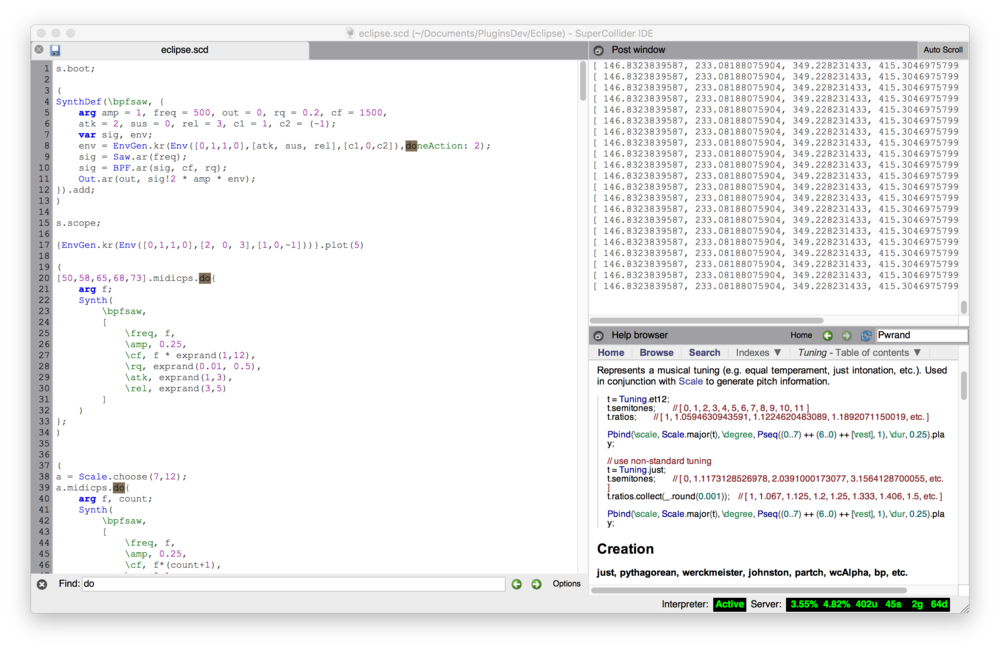Section Branding
Header Content
Composing An Eclipse Soundtrack For The Visually Impaired
Primary Content
The video playing on Bruce Walker’s computer screen looks ordinary enough: a few fish flit around in a small aquarium. But the soundtrack is anything but normal. Tones pile up, sputter, and jump in random, atonal bursts.
“There’s a yellow fish, an orange fish, and a blue fish,” Walker explained. “And each of those fish is represented by a particular musical instrument.”
The music responds to the fish as they move across the scene, their movements tracked by a camera. It sounds like Prokofiev’s symphonic fairy tale "Peter and the Wolf" thrown in a blender.
The piece is from Walker’s Accessible Aquarium Project: an effort to make places like aquariums, zoos, and science centers more engaging for the visually impaired.
It’s one of the many projects Walker has created at Georgia Tech’s Sonification Lab, a joint effort of the university’s psychology and interactive computing departments.
Sonification uses sound to convey information. In his lab, Walker and his team work on helping people who can’t see (i.e., the visually impaired) and can’t look (e.g., people using their eyes for tasks like driving) interact with the world around them.
Recently, they’ve undertaken a project of astronomical proportions: a soundtrack for the upcoming solar eclipse.
“Our hope was to try to take what’s happening between the sun and the moon and represent that in a way that allows a blind person to share in the experience,” Walker said.
The piece was commissioned by AT&T and visual-interpreting company Aira for a project to help a blind man experience the eclipse in Hopkinsville, KY, close to the point of greatest eclipse.
Walker and his team used data about how the eclipse will pass over Hopkinsville to structure the piece, which syncs up with the event.
The soundtrack will include elements composed in real-time based on conditions on the ground in Hopkinsville. As the temperature, brightness, and barometric pressure changes, the music will respond.
Walker’s team is also composing a separate piece based on conditions in Atlanta, even though the city isn’t in the path of totality. Both will be available to stream live during the eclipse.
But the project isn’t just about conveying information.
“This eclipse is this spectacular event, which makes people feel things. So, the idea was to induce those emotions in the music to arrange that way so that it lets you feel something,” said Avrosh Kumar, who worked with Walker on the piece.
Kumar worked to evoke that emotion using different sounds to play different parts of the eclipse, each produced electronically. Low, bass-heavy rumbles represent the sun. Higher frequencies represent the moon.
As the two bodies interact in the heavens, they interact in the score. The piece starts as the moon first begins to obscure the sun, builds to a climax at the point of totality, then deconstructs itself.
Kumar and his partner watched videos of other total solar eclipses for inspiration. They also consulted with visually impaired individuals.
It’s a kind of attention to detail that matters to Jane Boynton. She’s the program director of the Georgia Radio Reading Service, a 24/7 broadcast network that provides services to the visually impaired.
“I think projects like this are very valuable in order to be inclusive, in order to show people who have some limitations what’s going on in the world around them. They deserve to experience it as best they can,” she said.
Boynton’s planning to run eclipse-themed programming as the shadow of the moon passes across north Georgia Monday afternoon, August 21, triggering changes in light and temperature across the state.
That’s around the time that Walker’s team at Georgia Tech will fire up the live broadcast of their composition trying to make sure no one is left out of what’s been lauded as the most beautiful thing you can see in the sky.
“It’s more than just an astronomic event. It’s a cultural event,” Walker said. “If you’re blind, you’re not just being left out of the visual experience, you’re being marginalized from from the entire social happening.”



